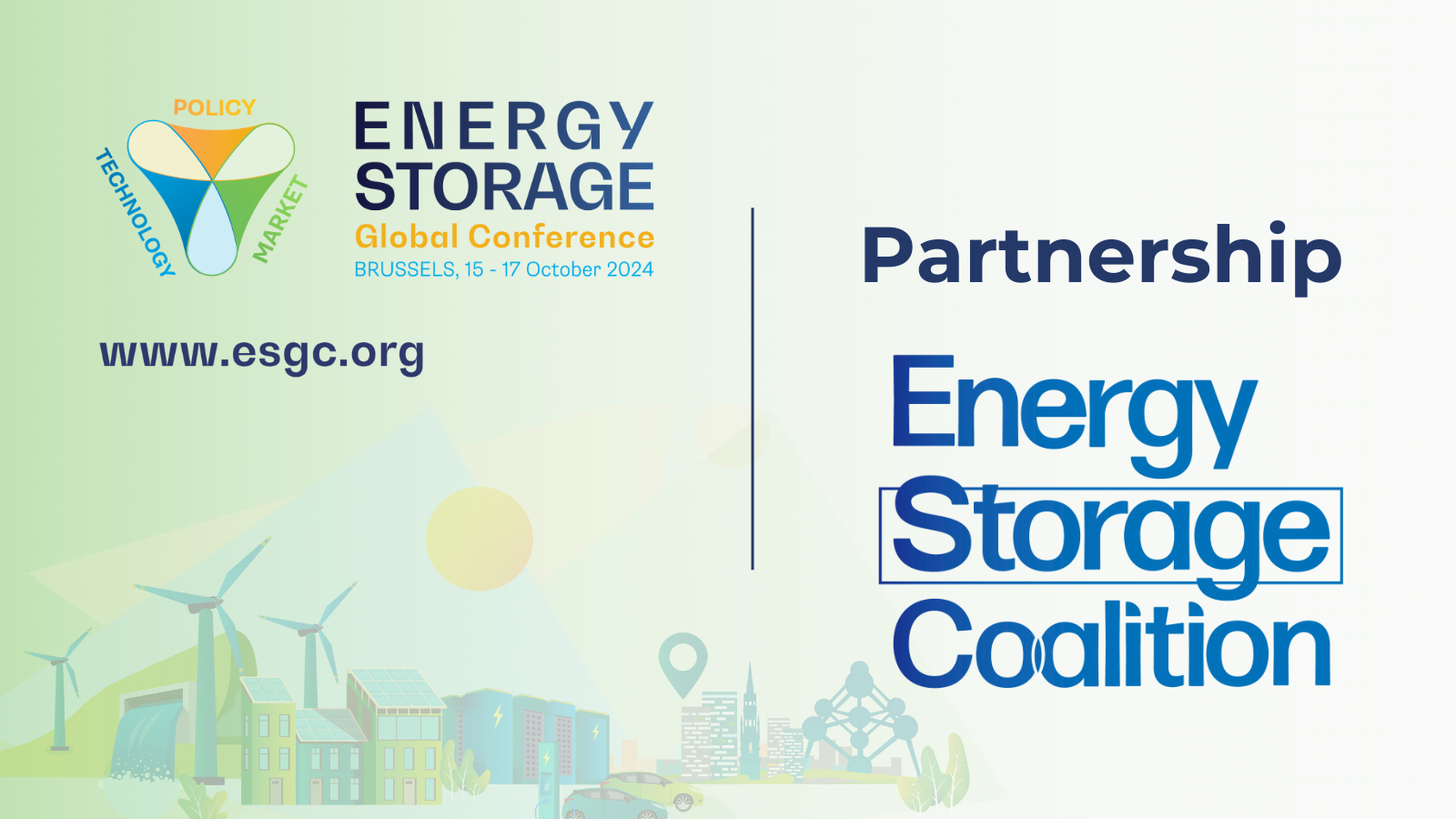Ensuring reliable, clean and low-cost energy supply for Europe
 27
Jun
2023
27
Jun
2023
On 22 June 2023 in the framework of the European Sustainable Energy Week 2023, the Energy Storage Coalition hosted a session on the crucial role of energy storage in achieving energy independence, reducing costs, and meeting ambitious renewable energy targets. The discussion centered around the potential of energy storage to replace fossil fuels as backup power generators and contribute to a sustainable energy landscape in Europe. Policymakers and key stakeholders from the industry shared their insights and highlighted the need for a supportive framework to unlock the full potential of energy storage.
Overcoming the challenges to energy storage deployment
Ms Doriana Forleo, Head of Communications at the Energy Storage Coalition, presented the role that energy storage coupled with renewables can play in the energy transition. She emphasized its potential as substitute for fossil fuel-based backup power generator, and stressed the importance of addressing skills gaps and involving citizens in the energy generation and consumption process.
The European Commission’s commitment to energy transition
Ms Beatriz Sinobas, Team Leader for Energy Security and Electricity at the European Commission, highlighted that, in the framework of EU’s commitment to achieve climate neutrality by 2050, the Commission has proposed various measures to accelerate the deployment of storage and renewable energy, reform the Electricity Market Design, and ensure the security of critical raw materials needed for the energy transition. Ms Sinobas emphasized that the energy system of the future is going to need flexibility, stability and reliability and recognised that energy storage can provide these services to the system while helping decarbonise and electrify the economy, reducing price volatility and empowering consumers to adapt their consumptions to market needs as well as their own ones.
Ms Sinobas explained that the European Commission adopted a recommendation on energy storage in March 2023 containing a set of concrete actions to ensure that Member States address the full potential of energy storage. This includes the need to improve the consideration of energy storage in grid planning, operations and financing to make sure all services provided are rewarded.
The importance of storage for reliability and grid integration
The panellists unanimously agreed that energy storage is essential for ensuring reliability, stability, and flexibility in the energy system. Mr Michael Geyer, European Affiliates’ Managing Director at Malta Inc., highlighted the need to replace current gas storage with renewables, making them dispatchable. Grid integration of storage and renewables is crucial for achieving 24/7 renewable energy supply and reducing curtailment.
Regulatory framework and market design
Speakers emphasized the importance of a stable regulatory framework to attract private investments and ensure a level playing field for energy storage. They called for improved grid planning, support schemes, and the removal of double charges. Mr Pierre Tardieu, Chief Policy Officer at WindEurope, emphasized the need to make sure the electricity market design gives direct price support while assessing flexibility needs and ensuring flexibility support schemes. On the latter, he expressed concerns about the fact that coal is still being taken into consideration by the Council, and he invited to focus on the promotion of the use of non-fossil generation, storage and co-location while also requiring compliance of assets with strict and gradually decreasing CO2 emission criteria.
Ms Walburga Hemetsberger, CEO, SolarPower Europe stressed that regulatory stability, speed-up permitting, secure, reliable and green supply chains and skilled workers are necessary for the integration of more co-located renewables and storage in the energy system, which would allow to reduce curtailment for renewables.
Also, Ms Marta Navarrete Moreno, Head of Policy and Regulation (Brussels office), Iberdrola, called for a stable and predictable regulatory framework at the European level, as the multiplication of uncoordinated interventions among Member States leads to a fragmentation of the internal energy market, and hinders the investments from the private sector.
To conclude
Mr Claude Turmes, Minister for Energy, Minister for Spatial Planning, Luxemburg stressed how storage is part of a bigger flexibility concern and highlighted the need to be strategic when it comes to bring energy storage in a competitive way in a market which allegedly would not allow for high CapEx investments.
Mr Philipp Offenberg, Senior Manager, Europe, Breakthrough Energy wrapped up the discussion by stressing that while we have seen a political awakening with regard to energy storage in the past years, to achieve ambitious renewable energy targets and climate neutrality by 2050, a supportive regulatory framework, improved grid planning, and financing mechanisms are necessary. He underlined that some outstanding issue in Electricity Market Design still needs to be addressed such as lowering the EU-wide Capacity Market carbon cap to reach net zero by 2040 at the latest, establishing a definition of 24/7 renewable PPAs and avoid double taxation.
The European Sustainable Energy Week 2023 shed light on the critical role of energy storage in Europe’s sustainable energy transition. By ensuring reliability, stability, and flexibility, energy storage can pave the way for a clean, affordable, and resilient energy system in Europe, empowering consumers and driving economic growth while reducing carbon emissions.
You can watch the full session here




